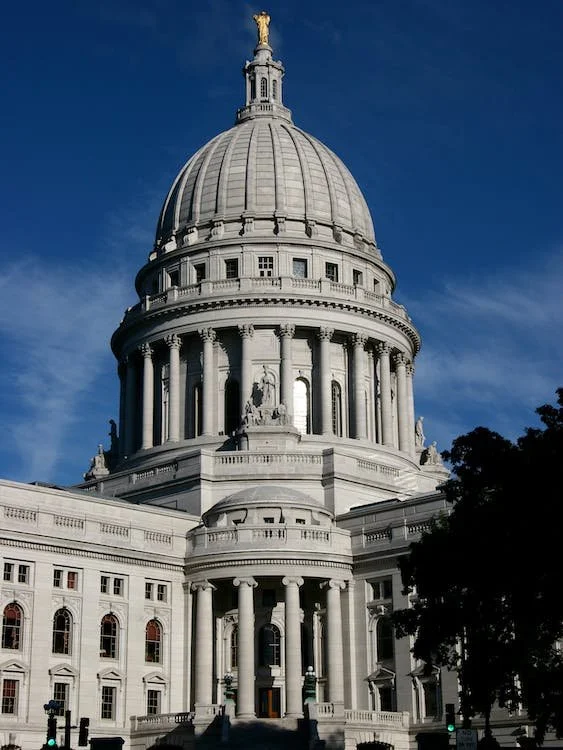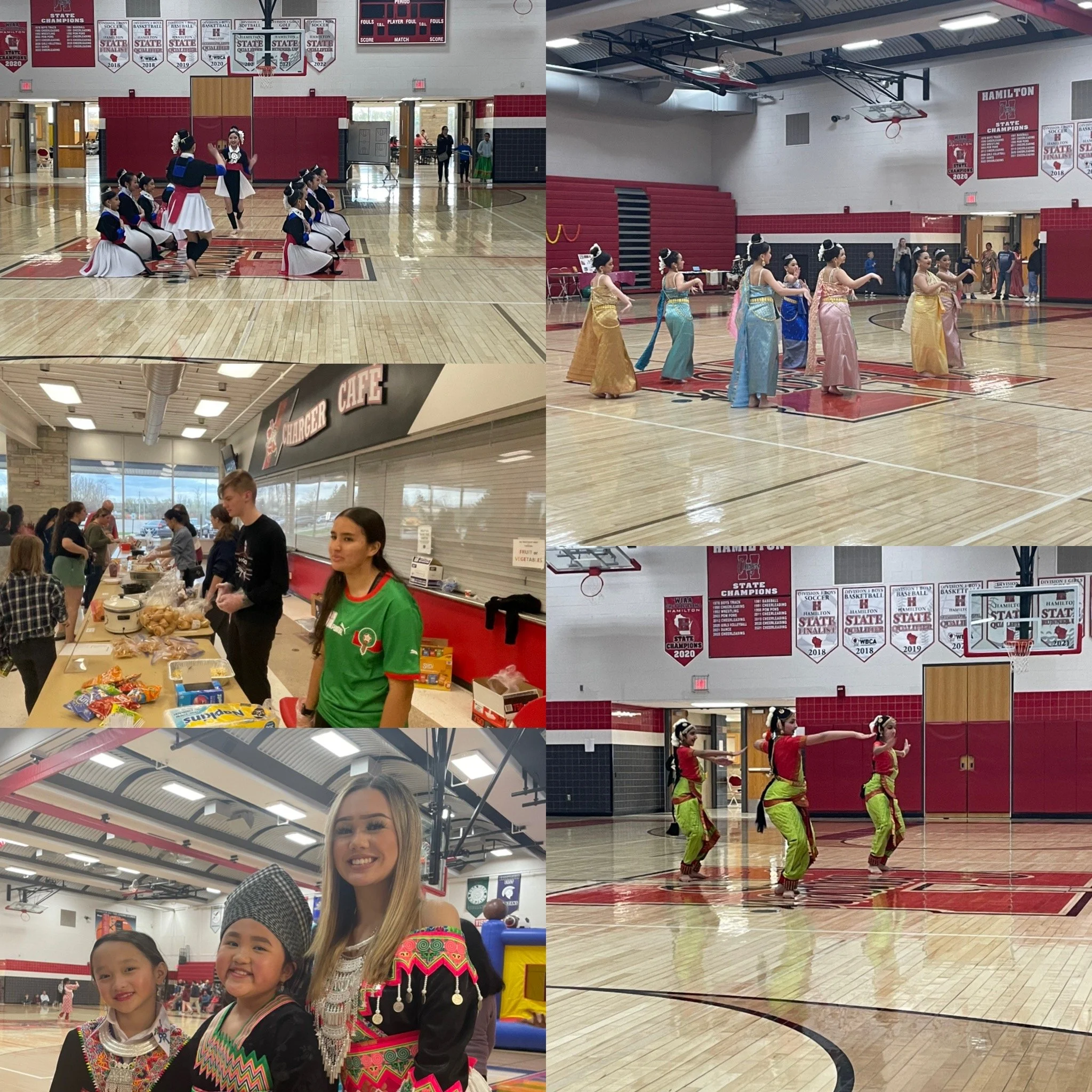College Admissions Tips
Photo from Pexels by Steve W.
Akhil Pidikiti
College admissions: A decision that will determine where you spend the next four years of your life. As acceptance rates for prestigious colleges around the world continue to decrease year by year, more and more students are getting denied admission to their top universities. Achieving near-perfect academic transcripts is simply not enough due to its commonality among the pool of applicants. Instead, it’s now your list of extracurriculars and personal essays that can guarantee your admission into these colleges.
Admission officers often have their own personal criteria when reading an applicant’s essay, and it is quite difficult to discern what they look for in an essay. This essay is the keystone of your personal beliefs, values, and core characteristics. It is a clear demonstration as to how you stand out from thousands of applicants, and why you deserve admission to this college. As such, choosing a unique topic, one that is able to clearly convey who you are, is of utmost importance.
Jessica Jones, an admission’s officer from UW-Madison, has offered her insight as to what she looks for in an applicant’s essay:
Common App Essay
1. What are some of the essays you've seen that have really stood out to you?
Answer: The essays I have seen that really stand out are the ones where students are talking about something they are truly passionate about. When you write about something you love or something that has deeply affected you, we feel that emotion when reading the essay. It is less about the structure and more about what is being conveyed through the essay. This essay needs to give me details on who you are as a person that I can't immediately draw from your transcript, letters of rec, or other materials. What makes you you? (I think a lot of students feel they have to pull from something hard or traumatic for this, but it doesn't necessarily have to be heavy or sad! Just tell me what makes you tick.)
2. What are some cliches you have seen within essays that you recommend avoiding?
Answer: There are a few that I see a lot, the first would be writing an essay about someone else. For example you want to study engineering and your dad is an engineer. You can say how this person inspires you, but if your whole essay is just about your dad, that doesn't help us when we are reading your application to learn more about you. The second is writing about a topic they think we want to hear about. It always feels disingenuous when you are writing about something that doesn't apply to you or something that you don't really care about.
3. How much time should you reserve to write the essay?
Answer: The more the better. I would recommend giving yourself a good amount of time so you can take breaks, revise and have others look at your essay to make sure it sounds like you.
4. How do you go about choosing an essay prompt?
Answer: There are so many essay prompts to choose from. I would look through the list (a quick Google search will give you a variety of examples that may help inspire you), then think about what you want to write your essay on and find the prompt that works best for what you want to write about.
5. Should you ask people to proofread your essay?
Answer: Yes, 100%, yes. I always recommend at least two people to read your essay. The first should be someone who knows English and can correct the mechanics of your essay. This can be someone like an English teacher. The second should be someone who knows you as a person and can make sure your essays are showcasing you. A great person for this is a parent or friend
Why UW-Madison (or Other School) Essay
This essay is designed to give the admissions committee a clear understanding of why UW-Madison (or your school of choice) is the perfect fit for you. In other words, do your research! Admissions Officers are looking for specific reasons as to why you want to attend UW-Madison; generic reasons such as “classroom size” or “wonderful atmosphere” are simply not enough. What about your major excites you? What programs do you hope to apply to? Take the time to research specific programs and/or classes you would like to participate in. For example, a biology major may want to speak about their interest in a specific research program that UW-Madison offers. Even if you're undecided, it is still important to speak about what you want to do, whether it be to better the community within UW-Madison or to better yourself. Additionally, be sure to convey how your future experiences at UW-Madison will contribute to your future career aspirations, goals, and passions. Emily Hokanson writes more in this Charger Press article: “Why Us?” College Essay Do’s and Don'ts
Here is what Jones advised when writing this essay:
What should you write about in this essay?
Answer: What motivates you to want to attend college/this college specifically/do this program? Why are you interested in your major? What are your goals? Do you want to be an entrepreneur? A writer? Give me some text about what motivated you to apply.Every essay is different, like a stress-inducing snowflake! Don't overthink what we want to hear, just show us what matters to you! Ultimately, every applicant has a story to tell, you just need to express it the right way. Take the time to reflect on your past experiences, and summarize what makes you unique. Don’t overthink what we want to hear, just show us what matters to you!
Extracurricular Activities
In addition to the essay, extracurricular activities can set a student apart on an application. Extracurricular activities are what highlight your efforts to be a contributing member of your community and society. Here is what Jones had to say about criteria regarding extracurriculars:
Is there a certain number of clubs or activities that a student should join?
Answer: I recommend that students think about the quality of activities and/or awards they share rather than quantity. Students can think broadly about what extracurricular activities they include on their application, and there is no one particular activity that we're looking for. We just want to make sure that students are spending their time outside of school in a way that feels meaningful to them, which can include things like school clubs, athletics, the arts, employment experience, family or household responsibilities, or summer programs. If you've had any leadership positions within your extracurriculars, we would encourage that you share those with us, since that can be a good way for us to see the depth of your involvement.
How should I describe my extracurriculars in my common app?
Answer: The activity description blurbs should be used to give us a very brief description of the activity and/or the role you play in it; keep in mind that we may not know what a particular club involves or focuses on, so if you're sharing a broad activity/club title like "Connect Club," be sure to make it clear to us what you actually do or have accomplished as a member of that club.
As perfect grades and GPAs continue to become obsolete in the world of college admissions, it is getting increasingly difficult to stand out among the crowd. Based on Jones’ advice above and my personal experience with college applications, here is a beginner’s guide for freshman, sophomores, juniors, and seniors on how to utilize your resources at Hamilton to become the best applicant you can be:
Club & Sports
Hamilton offers a wide variety of clubs and sports, all of which can help you stand out when applying to college. Freshmen and sophomores, I encourage you all to join as many clubs as possible to see which ones you enjoy the most as these clubs may offer numerous benefits such as new friends, leadership opportunities, and even an insight as to what you may want to do in the future. Charger Press has a detailed article on some of the clubs offered at Hamilton such as HOSA and DECA. If none of these clubs interest you, you could definitely start your own club (this is a great way to show leadership and initiative).
However, simply joining multiple clubs is not enough, it is crucial to be an active member, whether that be by volunteering at fundraisers or just by consistently showing up to every meeting. As juniors and seniors, your next step should be to narrow the amount of clubs you participate in and choose the ones you value the most to become a really active, involved member. Within these clubs, apply for leadership positions. For example, If you’re on the tennis team, you could apply for team captain, or if you’re in HOSA, you could apply for a position on the executive board. Once again, simply maintaining a leadership position is not enough; colleges like to see your role in the club and how much the club has benefited from appointing you as a leader.
Jobs
While maintaining your academic standards is crucial, colleges want to see that you are able to balance school with other aspects of your life, with one of the most common being applying for a part time job. Did you know that Hamilton has a job board posted on the Hamilton website? It has over 10 available job positions, with new positions being added weekly. Part time jobs are a great way to gain new skills that can help build your resume and college application. Additionally, your employer is a great person to ask for a recommendation letter, especially if you have worked under them for more than a year.
Programs/Internships
Many companies, organizations, and colleges offer internships and programs for high school students. These programs, while competitive, can often give students real world experience that can help them stand out from the rest. A simple Google search such as “research programs/internships for high school students in Wisconsin” can yield numerous programs and internships. For example, the Medical College of Wisconsin offers numerous high school research programs that allow students to gain valuable clinical and shadowing experience. These programs are a great way to make connections and earn recommendation letters.
Volunteering
Volunteering in today’s society is a must-have on any college application as it is a great way to show your involvement with your community, and freshmen should begin volunteering as early as possible. Within Sussex, there are a multitude of opportunities for students to volunteer from the Pauline Haas Library to the Froedtert Menomonee Falls Hospital. Hamilton High School’s very own NHS club has numerous volunteering opportunities for juniors and seniors. The Leo Club is another great way to get involved with volunteering opportunities such as food drives, writing letters to senior citizens or hospital patients, and more. However, many volunteering programs don’t track your volunteer hours, and it can be quite difficult to remember how often you volunteered. I suggest creating some sort of spreadsheet listing the place, date, and total number of hours you volunteered. This can be incredibly helpful when filling out scholarships and applications as many will ask for a concrete number when filling out your volunteer hours. Once again, volunteering is a great place to make connections and ask for recommendation letters from your supervisor.
Timeline Tips
As college admissions officers continue to become increasingly selective, it is crucial for high school students to be prepared. In addition to the information above, here’s a good timeline to consider to get serious about preparing for college applications:
Freshmen should aim to join as many clubs as possible within Hamilton, while also keeping an eye out for possible volunteering opportunities. Remember to track volunteer hours/dates!
Sophomores should choose 2-4 clubs that best suit their interests, and become an active member within these select few clubs (an active member means showing up to every meeting, volunteering to help the club, and socializing with other club members). Sophomores should also be applying to part time jobs alongside their volunteering.
Juniors need to start applying to research programs, internships, and shadowing opportunities outside of school, while also applying for leadership positions within Hamilton clubs (keep in mind that you should still be working and volunteering consistently). The summer of junior year is when you need to start requesting recommendation letters from your workplace, volunteering center, and any programs you are currently or have been involved in. Summer is also the perfect time to tour colleges, and begin creating a list of potential places you may want to apply for (specifically which ones you may want to apply for under early action). Juniors NEED to start writing their common app essays and supplemental essays before the next school year begins (it’s also helpful to reach out to your past Comm. Arts teachers to help proofread your essays). While many students believe that scholarships are meant for senior year, it can be highly beneficial to write essays tailored towards generic scholarship questions such as “What are your career goals?” or “Why do you feel you deserve this scholarship?”, etc.
Seniors need to begin completing all early action college applications as soon as the school year starts. Make sure to fill out your FAFSA application, and any additional material required by your colleges. This is also the time to be applying to scholarships as many of the big scholarships are due within the first few months of the school year (such as the Herb Kohl Scholarship).
Applying to college is a daunting task, and competitive admissions is making the process even more stressful. Following these tips from UW-Admissions Officer Jessica Jones and this suggested timeline can help make the process less stressful.






